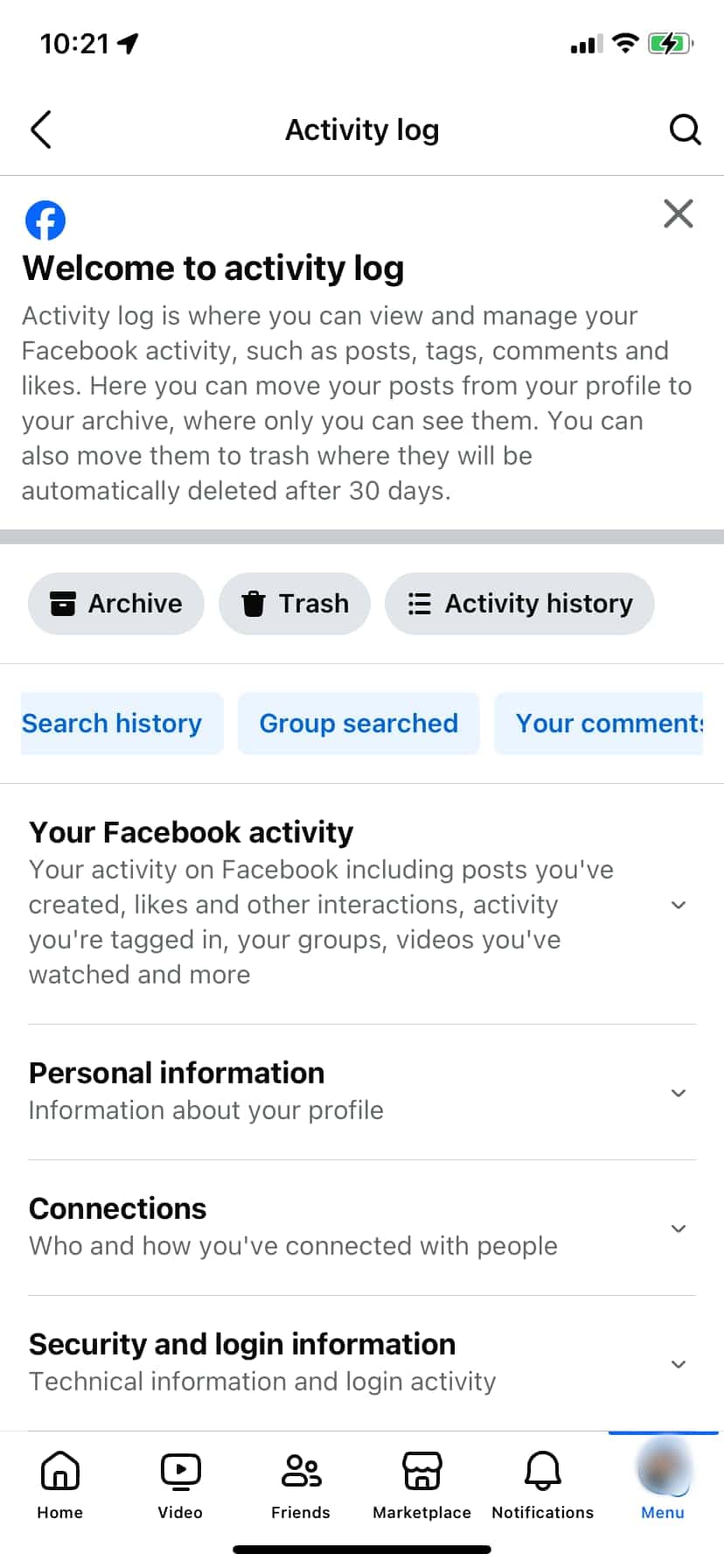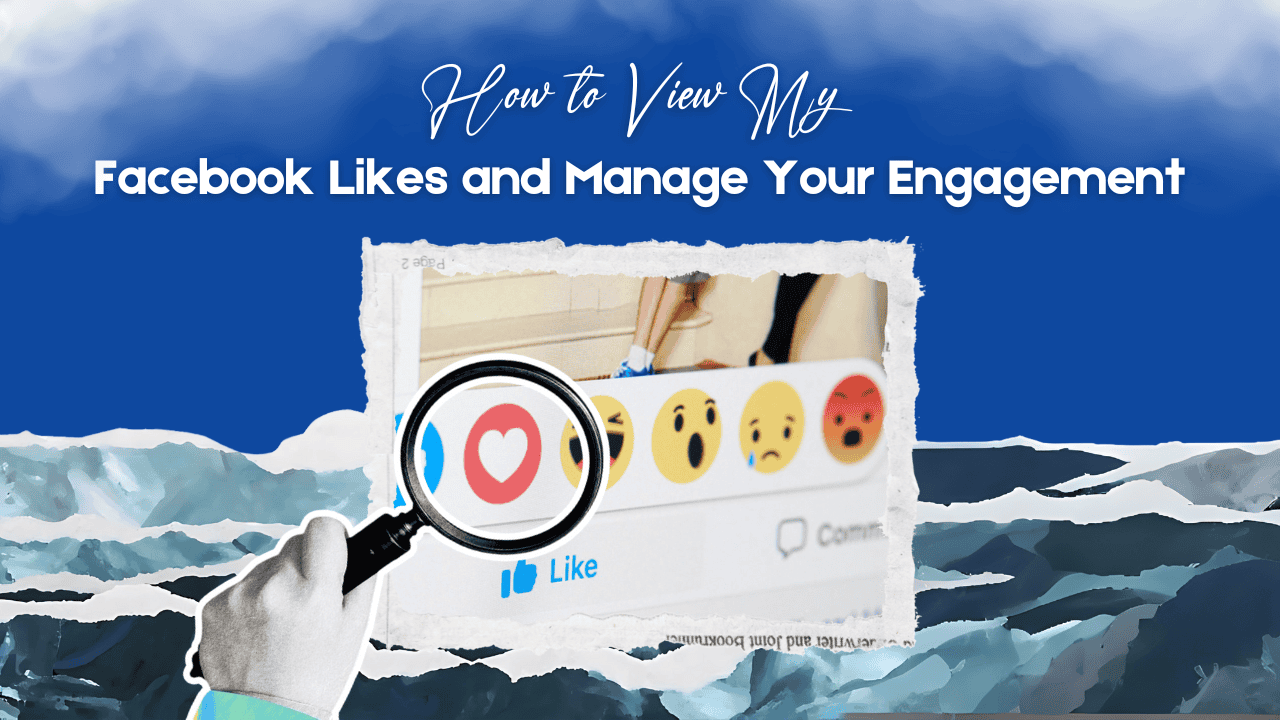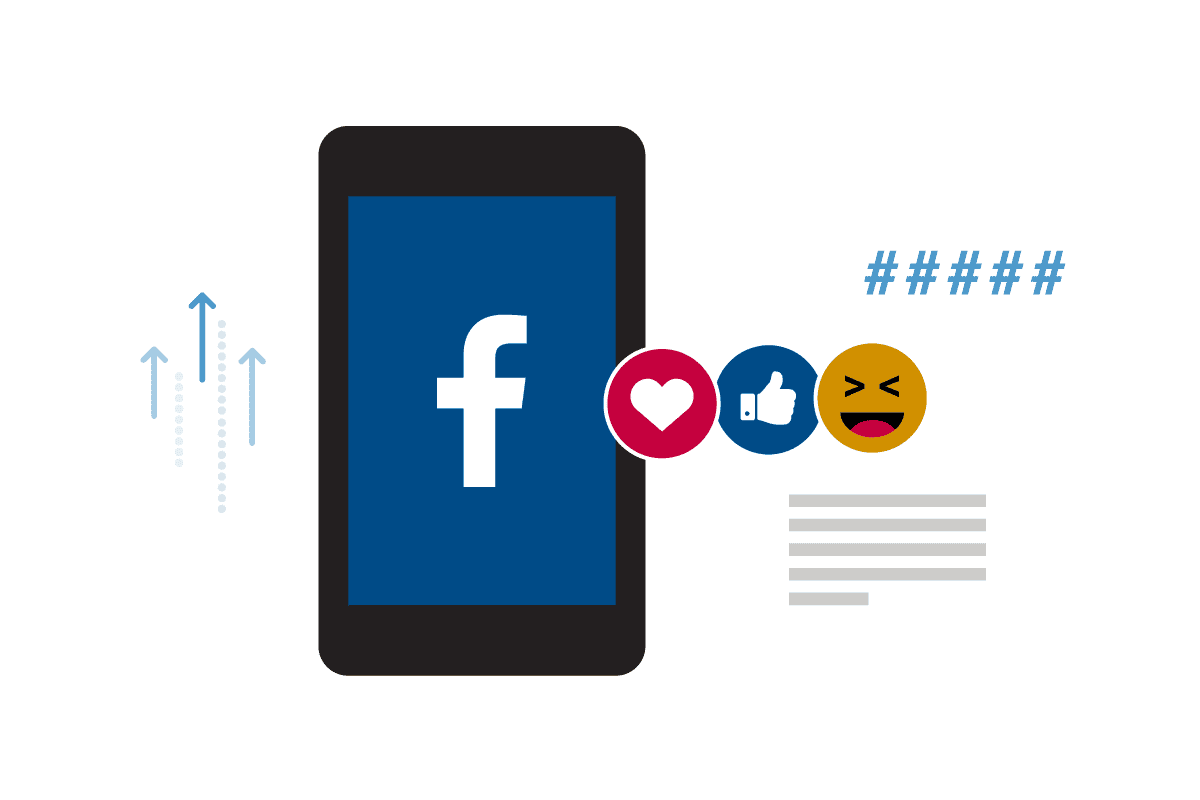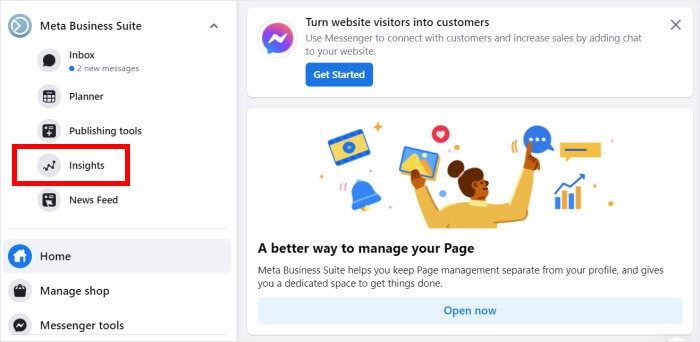Why Are Facebook Likes and Engagement Important?
1. Build Credibility
The number of Likes on your Facebook page or posts plays a significant role in establishing your credibility. A higher Like count often gives the impression that your brand, content, or message is popular and trustworthy. When potential followers or customers see that others have already engaged with your page, they are more likely to view your content positively and interact with it themselves. This social proof can make your page appear more authoritative and reliable in your niche or industry.
2. Understand Your Audience
Likes and other forms of engagement are valuable tools for gaining insights into your audience’s preferences and behaviors. By analyzing the content that receives the most Likes, you can identify the types of posts your audience finds appealing.
For instance, if your audience frequently engages with educational posts, you can focus on creating more content that aligns with this interest. This understanding allows you to tailor your content strategy to better meet the expectations and desires of your followers.
3. Boost Visibility
Facebook’s algorithm prioritizes content with higher engagement levels, such as posts with a significant number of Likes, comments, and shares. When your content performs well, it is more likely to appear on the news feeds of your followers and even reach new audiences through suggestions or shares.
This increased visibility not only helps your page grow but also enhances the chances of your message reaching the right people. The more engagement your posts receive, the better their chances of being featured prominently in your followers’ feeds.
4. Strengthen Connections
Engagement is more than just numbers; it’s about building relationships with your audience. When people interact with your content by Liking, commenting, or sharing, they feel more connected to your brand. Responding to comments and encouraging conversations can transform casual viewers into loyal fans who trust and support your page. Over time, this sense of connection fosters a community around your page, which can lead to higher retention rates, repeat interactions, and even advocacy for your brand among their networks.
By understanding and leveraging the importance of Facebook Likes and engagement, you can create a strategy that not only attracts attention but also builds meaningful connections with your audience.
How to View Your Facebook Likes
Viewing your Facebook likes is simple. Follow these steps depending on the device you’re using:
On Desktop
1. Log in to your Facebook account.
2. Go to your profile by clicking your name or profile picture.
3. Click the “About” tab under your profile picture.
4. On the left-hand menu, click “Likes.”
5. You’ll see a list of pages, posts, and other content you’ve liked.
On Mobile (Facebook App)
1. Open the Facebook app and log in.
2. Tap your profile picture to go to your profile.
3. Scroll down to find “Activity Log” and tap on it.
4. Tap “Filters” and select “Likes and Reactions.”
You’ll now see your liked content.
Viewing Liked Posts and Comments
If you want to see specific posts or comments you’ve liked:
1. Open your Activity Log as described above.
2. Use the search bar to type keywords or filter by date to narrow your results.

How to Manage Your Facebook Likes
Managing your likes is essential to ensure they still align with your current interests and values. Here’s how you can do it:
Unlike Pages or Posts
- Navigate to the content you no longer wish to like.
- Click the “Like” button again to unlike it.
Edit Your Interests
- From your likes page, scroll through the list of liked pages.
- Decide which pages are no longer relevant to you.
- Click the options menu (three dots) next to the page name and select “Unlike.”
Adjust Privacy Settings
You can also control who sees your liked pages:
1. Go to Settings & Privacy in your profile.
2. Click Privacy Settings.
3. Find the “Who can see your likes?” option and adjust it to your preference (Public, Friends, Only Me, etc.).
Tips for Managing Engagement on Facebook
Engagement goes beyond likes. It’s about how you interact with others and how others interact with you. Here are some detailed tips:
1. Engage with Relevant Content
- Be Intentional: Focus on liking, commenting, and sharing posts that align with your interests, beliefs, and values. This not only personalizes your feed but also helps Facebook’s algorithm understand your preferences better.
- Avoid Negativity: Refrain from engaging with posts that spread misinformation, promote negativity, or are irrelevant to your goals. Such interactions can clutter your feed and impact the content you’re exposed to.
- Support Quality Content: Like and share posts that you find meaningful or inspiring. Your engagement can amplify positive messages and content.
2. Respond to Comments
- Encourage Dialogue: If you’re posting content, take time to respond to comments thoughtfully. Engaging with your audience builds stronger connections and encourages more interaction.
- Be Respectful: Always maintain a polite and respectful tone, even when addressing criticism. Positive communication fosters a healthy online presence.
- Use Comments to Gain Insights: Pay attention to what people say in comments. This feedback can provide valuable insights into what resonates with your audience.
3. Control Notifications
- Stay Organized: Notifications can quickly become overwhelming. To manage them effectively:
Click the three dots on a post or page and select “Turn off notifications.”
Adjust your settings to receive notifications only for content that matters to you.
- Use Filters: Prioritize updates from specific friends or pages by customizing your notification settings under Settings & Privacy.
- Reduce Distractions: Limiting unnecessary notifications helps you focus on meaningful interactions rather than being bombarded with updates.
4. Use Facebook Insights (For Pages)
- Track Performance: Use the Insights tool to understand how your posts are performing. Metrics like reach, engagement, and shares provide a clear picture of what’s working.
- Identify Top Content: Look at which types of posts (e.g., videos, photos, or text updates) get the most engagement and focus on creating more of that content.
- Understand Your Audience: Insights also reveal audience demographics, such as age, location, and interests. Use this information to tailor your content to their preferences.
- Refine Your Strategy: Regularly analyze the data to adjust your posting schedule, format, and tone for maximum impact.
Best Practices for Meaningful Engagement
Engagement on Facebook goes beyond the number of likes, comments, or shares you receive—it’s about creating meaningful connections and leaving a lasting impression. Whether you’re an individual, a business, or a creator, following these best practices can help you make the most of your time on the platform while building authentic relationships with your audience.
1. Focus on Quality Content
Creating content that resonates with your audience is the foundation of meaningful engagement. Share posts that inform, entertain, or inspire. Whether it’s a thoughtful blog post, an eye-catching video, or a heartfelt story, high-quality content encourages your followers to interact by liking, commenting, and sharing. Consider using visuals like images or infographics to make your posts stand out in crowded feeds.
2. Be Consistent
For creators and businesses, consistency is key to staying relevant. Regularly posting content helps keep your audience engaged and builds anticipation for what you’ll share next. However, consistency doesn’t mean overwhelming your followers with multiple posts a day. Strike a balance and create a content calendar to ensure a steady and manageable flow of posts.
Tip: Use Facebook’s scheduling tools to plan posts and maintain consistency even during busy times.
3. Interact Thoughtfully
Engagement is a two-way street. Take time to respond to comments, questions, and messages in a thoughtful and meaningful way. Instead of generic replies like “Thanks” or “Great,” personalize your responses to show genuine interest. This not only strengthens your relationship with your audience but also encourages them to interact more.
Tip: Use their name or reference their comment when replying to make your interaction more personal and engaging.
4. Avoid Spammy Behavior
While it might be tempting to flood your feed with likes, comments, or posts, overly aggressive activity can come off as insincere or even annoying. Authentic engagement is always more valuable than high-frequency, low-quality activity. Focus on being intentional with your interactions and avoid using automated tools that may feel impersonal to your audience.
5. Keep Up with Trends
Facebook is constantly evolving, and staying ahead of the curve can give you an edge. Features like Reels, Stories, and Live Videos are gaining popularity and offer fresh ways to connect with your audience. Experiment with these tools to keep your content dynamic and relevant. Pay attention to algorithm updates and new features that might help boost your visibility.
The Role of Analytics in Engagement Management
If you manage a Facebook page, analytics isn’t just a helpful tool—it’s an essential part of your strategy for building meaningful engagement. By understanding and using the insights provided by Facebook’s analytics tools, you can make data-driven decisions that help you connect with your audience more effectively and grow your page. Here’s how you can leverage analytics to improve your engagement:
1. Monitor Post Performance
Analytics helps you track how your posts are performing through key metrics like likes, shares, comments, reach, and click-through rates. These insights allow you to see which types of content resonate most with your audience. For instance, a post with high shares and comments indicates strong engagement and might inspire similar content in the future. On the other hand, posts with low reach or interaction can signal a need for improvement in your content strategy.
2. Identify Peak Times
Timing is everything when it comes to social media. Facebook’s analytics tools can show you when your audience is most active online. By posting during these peak times, you increase the likelihood of your content being seen and engaged with. This can be particularly important if your audience spans multiple time zones, as you may need to schedule posts strategically.
Pro Tip: Experiment with different posting times to refine your schedule. Even slight changes can make a big difference in visibility and engagement.
3. Understand Audience Demographics
Knowing your audience is critical to creating content that speaks directly to them. Facebook’s analytics provide detailed information about your followers, including their age, gender, location, and even interests. Use this data to tailor your content so it aligns with your audience’s preferences and needs. For example, if most of your followers are young adults, you might prioritize visually engaging or trend-focused posts.
4. Track Engagement Trends
Engagement trends over time can reveal valuable patterns. For example, you may notice that engagement spikes when you post interactive content like polls or questions, or that video posts consistently outperform image posts. Tracking these trends allows you to refine your content strategy and focus on what works best for your audience.
5. Adjust Your Strategy
Analytics is all about learning and adapting. If certain types of posts consistently underperform, use the data to identify what’s not working. For instance, you might find that long text posts don’t engage your audience as much as concise, image-based updates. By identifying weak points, you can pivot and try new approaches to improve your engagement rates.
Pro Tip: Test different formats, styles, and tones to find the perfect fit for your audience. Use A/B testing to experiment with variations of the same post to see which performs better.
6. Set Realistic Goals and Track Progress
Analytics also allows you to set measurable goals for your Facebook page. Whether it’s increasing your reach, boosting engagement rates, or growing your follower count, tracking progress with analytics ensures you stay on target. Regularly reviewing your performance helps you celebrate wins and address challenges promptly.
7. Use Comparative Analysis
If you manage multiple Facebook pages or have competitors in your niche, use analytics to compare performance. Look at how your metrics stack up against similar pages to identify opportunities for improvement. Comparative analysis can also reveal gaps in your strategy and inspire new content ideas.
8. Leverage Insights for Paid Campaigns
If you’re running Facebook ads, analytics can guide you in optimizing your campaigns. Track metrics like cost-per-click (CPC), conversion rates, and ad reach to evaluate the success of your paid efforts. Use these insights to refine your audience targeting, adjust your ad creative, or allocate your budget more effectively.
Pro Tip: Continuously test and tweak your ad campaigns using real-time analytics to maximize your return on investment (ROI).
9. Keep Your Strategy Dynamic
Finally, remember that analytics isn’t a one-time effort—it’s an ongoing process. Facebook’s algorithms and user behavior are always changing, so staying on top of your analytics ensures your strategy remains effective. Regularly reviewing and adjusting your approach will help you stay ahead of the curve and maintain strong engagement with your audience.
Pro Tip: Schedule regular analytics reviews—weekly, bi-weekly, or monthly—to stay informed and proactive.
The Benefits of Managing Your Engagement
Why is it important to actively manage your likes and interactions on Facebook? Here are some detailed benefits:
- A Cleaner Feed: Over time, you may find that your feed becomes cluttered with irrelevant or outdated content. By unliking pages and posts you no longer care about, you can declutter your feed and make it more personalized and enjoyable to browse.
- Better Recommendations: Facebook’s algorithm uses your likes and interactions to suggest content, pages, and people. By managing your likes, you ensure that Facebook recommends more accurate and meaningful content that aligns with your current preferences.
- Positive Online Presence: Thoughtful engagement helps you maintain a consistent and positive image online. By curating the content you interact with, you can influence how others perceive you, whether for personal or professional purposes.
- Improved Privacy: Likes and interactions can reveal a lot about your interests and personal life. Managing who can see your likes and adjusting your privacy settings ensures that your personal information stays protected and visible only to those you trust.
- Increased Productivity: A streamlined feed reduces distractions and helps you focus on meaningful interactions. Whether you’re networking, catching up with friends, or using Facebook for business, a well-organized experience ensures your time is spent on what truly matters.
- Enhanced Relationships: By interacting with relevant content and responding thoughtfully to comments, you can strengthen your connections with friends, family, or followers. Thoughtful engagement fosters deeper, more meaningful online relationships.
Taking these steps can transform your Facebook experience, making it not only enjoyable but also a tool for meaningful interactions and personal growth.
Final Words
Facebook is an excellent platform to stay connected and share your interests, but managing your likes and engagement is crucial to keeping your experience meaningful. By organizing your likes, engaging thoughtfully, and using tools like Facebook Insights, you can make the platform work for you—not the other way around.
Now that you know how to view your likes and manage engagement, why not give it a try? Take a moment today to review your activity and see how you can fine-tune your Facebook experience. Whether it’s unliking outdated pages, responding to comments, or engaging with positive content, small actions can make a big difference.
Start managing your Facebook engagement today, and make your online presence more enjoyable and purposeful!





